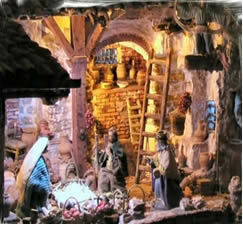Everyday life can be quite hectic. Family life involves all kinds of daily commitments that are often carried out without paying attention. In addition to the events repeated daily, family life also includes special moments, commemorations, celebrations of all kinds, the so-called family parties.
What is a party?
A party is a ritual, a form of celebration of some important date or event expected by everyone. Unlike everyday events, parties are more or less planned events, where the meeting is arranged and the reason is shared by everyone present. Each party has a specific format, an arrangement of elements that gives meaning to the commemorated date. Birthday parties are different from Christmas and New Years parties. A wedding party is different from a farewell party or a family gathering. As much as people are the same, they know, by the way it is organized, what to expect from each party.
family parties
If parties are rituals of commemoration or celebration of an important date or event, it is not surprising that talking about a party implies almost instantly in meeting family members. This is because it is common for people close to be part of these moments.
Family parties can be social traditions, such as dates shared by everyone in the city, state or nation, where everyone celebrates for the same reason, whether civil or religious. In addition, each family creates its own traditions, birthday and wedding celebrations, theme parties, etc.
It is important to emphasize the particularities that each family gives to the ritual. In some homes Christmas is celebrated with dinner, in others with music and dancing, in still others with prayers and prayers. The New Year, for example, can be celebrated at home or on a family trip. This means that the symbology of the date, however socially shared it may be, takes on different meanings in each family. These meanings promote communication, reflection and memory within families.
What are the types of family parties?
Some authors argue that there are three types of family gatherings:
- standard interactions - rituals that are part of the daily lives of families, such as dinnertime, bedtime, among others.
- family traditions - unique rituals of each family such as family gatherings and gatherings.
- family celebrations - rituals that mark the passing of the calendar in annual celebrations.
It is important to emphasize that this subject has been studied in its transformations. Over the years, family parties are influenced by social pressures and the meanings externally attributed to the parties.
An interesting example is children's parties. In the documentary “Criança, the soul of the business”, professor and psychologist Julia Marques comments on changes in tradition of children's birthday parties, saying that in the transformation process, the children's party underwent a process of standardization. In the past, children's parties had simple but significant differences: the type of cake, the place of the event (some in houses, others in buildings, others in the countryside) etc. Today, the general trend is for children's parties to be held in specialized buffets that standardize all parties, with little differences between them. The consequences of this transformation are that, for children and adults, the differences between the parties and the meanings of the commemoration are lost, they are transformed into comparisons between grandeur and price of each event.
How to find out more?
The theme of family reunions is dear to filmmakers, many interesting examples can be cited. Some more fun, some more dramatic, as can family get-togethers. The movie “Rachel's Wedding” (Rachel Getting Married, USA, 2008) is an interesting example of how family gatherings are moments of memory and elaboration of life. To discuss the transformations in the relationship between families and celebrations, the series Arroba parties, shown by Discovery Home & Health channel presents the great investments made by parents in children's parties.
Juliana Spinelli Ferrari
Brazil School Collaborator
Graduated in Psychology from UNESP - Universidade Estadual Paulista
Brief psychotherapy course by FUNDEB - Foundation for the Development of Bauru
Master's Student in School Psychology and Human Development at USP - University of São Paulo
Source: Brazil School - https://brasilescola.uol.com.br/psicologia/festas-familia.htm



